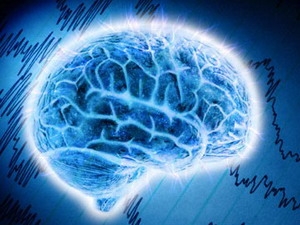The brain can age faster if the heart provides less blood
A person with a low heart rate, an amount of blood pumped from the heart to the whole body will have at least 2 years older brains than the person with the highest index.

Illustration.Source: Internet
Keep your heart healthy and you can slow down the aging process of the brain, which is the advice of American scientists published in the Journal of the American Heart Association.
Dr. Angela L. Jefferson and colleagues at Boston University conducted a study of magnetic resonance imaging information for the brain and heart at 1,504 people including men and women aged 34-84. These people do not have a history of stroke, ischemia or dementia.
The scientists measured cardiac activity by magnetic resonance imaging (MRI) and analyzed the data for the face of the participants. Brain mass was also assessed by MRI method. Participants were divided into three groups based on cardiac activity indicators.
According to Dr. Jefferson, people with the lowest cardiac index mean that the amount of blood pumped from the heart to the entire body will be at least two years older than those with the highest index. People in the group with average cardiac index, ie low blood flow from the heart but still enough for the body, have similar results ie having a brain that is two years older than those with the highest index. .
"We expected a link between the lowest blood supply index and a smaller brain mass, but we were surprised to find that people with an average blood supply index also had The brain is smaller than those with the highest blood supply index, " said Dr. Jefferson.
According to Dr. Jefferson, scientists still do not fully understand the relationship between the function of the heart and the mass of the brain. There are several analytic theories why the low blood supply index affects the health of the brain. For example, less pumped blood from the heart can reduce blood flow to the brain, providing less oxygen and nutrients to brain cells. However, more experiments still need to be done to confirm this relationship, Dr. Jefferson said.
- Both blood pressure measurements help detect heart disease early
- Aspirin is effective against blood clots
- 27 interesting facts about your heart
- Wearing tight ties can reduce brain function
- The man heard faster than he looked
- The ambition to create artificial brains works faster than the human brain
- What is BPM index? Differences between heart rate and blood pressure
- People can control the heart
- The truth about heart disease and stroke
- Little things to know about the human heart
- Robot sucks blood from the skull
- Heart defects are susceptible to brain aneurysms
 Green tea cleans teeth better than mouthwash?
Green tea cleans teeth better than mouthwash? Death kiss: This is why you should not let anyone kiss your baby's lips
Death kiss: This is why you should not let anyone kiss your baby's lips What is salmonellosis?
What is salmonellosis? Caution should be exercised when using aloe vera through eating and drinking
Caution should be exercised when using aloe vera through eating and drinking